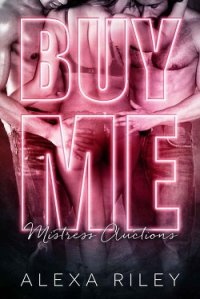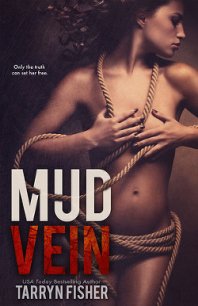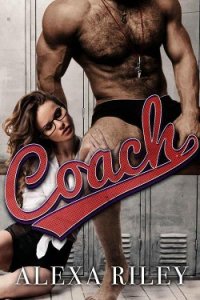Rootless - Howard Chris (книги бесплатно без регистрации .txt) 📗
I had the hatch lifted and was sprawled in the back of the wagon, surrounded by my tools and supplies. The pliers and hammers, sheets of metal and rolls of wire. I had my head propped on a box of LEDs, a sack of screwdrivers beneath my feet. On one side of the compartment hung the blowtorch and nail gun, my gloves and an extra pair of goggles, and on the other side, I had stashed my advance. Enough popcorn for one more week. Three meals a day.
The microwave pinged and I pulled the popcorn out. Superfood, GenTech calls it. Engineered for everything a body needs. And maybe that’s true if you eat enough of it. But most folk look yellow and bent over and all stretched out and thin. And even someone rich has to fake looking older — no matter how full your belly, most everyone ends up with crusted lungs, sooner or later.
I cracked the purple bag open. Mac’n’Cheese, by the smell of it. I guess they used to get cheese out of cows, back before every critter had been swallowed and spat. But now we just got whatever GenTech figured cheese should taste like. Still, the corn was sweaty and stinking in my hand, and as glorious a dinner as I’d any right to expect.
I picked up Pop’s old sombrero. The hat was woven out of corn husk, punched full of holes, and stained with my old man’s sweat. Stick my face inside, I could still catch the smoky scent of him. And pulling the hat on, I imagined telling Frost he could shove his job where the sun don’t shine. Because my old man would have split, no matter how desperate. Soon as Frost started treating his lady like dirt.
Pop used to say we’d build a forest of our own, once we saved enough to quit drifting. He said we’d build a house in the treetops, hidden away from the suffering and spite.
Weren’t going to happen now, though. It had been almost a year since Pop had been taken, and missing him still stung like a broken tooth. Sure, I’d gotten used to building without him, taking care of the wagon, eating alone. But the silent times crept up and turned things hollow.
I took off the hat, lounged back and studied the house, watching the lights flicker on and off. And when I was done eating, I didn’t feel like sleeping and I didn’t feel like figuring how I was going to build the tree mapped out on Frost’s wife. So instead I reached in the box of LEDs and rummaged around. Pulled out my headlamp. And my book.
I never did take to reading, but Pop had been able. My mother taught him before she starved. Before she passed on. So maybe the book reminded me of the mother I wasn’t able to remember, as much as the father I couldn’t forget.
But the book also reminded me of the stories Pop used to read me. The stories of the old world. Tales of folk that marched along rivers that ran cold and clean, fish to be caught and things to be hunted, grass growing tall and valleys full of flowers and trees in the mountains that pushed at the sky.
Trees full of seeds and blossom. Branches weighed with nuts and berries and other things just waiting to be picked off and chewed.
The book was stained the same rusty color as my wagon, and I flipped through the pages, put my face to them, and breathed them in as if I could breath the stories in, too. But it was then I heard a scrabbling sound come digging around outside.
Close. Real close.
I slipped the book beneath a sack of nails, making sure it was well hid. Then I scooted out the back of the wagon and threw myself into the dark.
“Who is it?” I hissed.
But right away I saw him. The fat kid from the window, squatted down by my rear wheel like he was pissing on the tire.
“You’re the tree builder,” the kid said with a chubby grin. He jerked up as I shone the headlamp at him. “You live in my house.”
“I don’t go near the house. Strict orders.”
“Too bad.” The kid snickered. “We got lights. And a television.”
“It works?”
“Like a dream.”
I leaned against the wagon. Played some old movies, is what the kid meant. Still, if there were trees in those movies, you’d get to see them alive and well. The branches swirling and dancing, leaves puffing in the wind.
“So it’s too bad you’re not allowed in the house.” The fat kid snickered again.
“Maybe we start being friends and your old man will have me over.”
“Doubt it,” the kid said, sticking his head in the back of the wagon, snuffling around at my stuff.
“Don’t be shy, now,” I told him. I watched the house, wondered if just talking to Frost’s kid might get me in trouble.
“You liked it?” The kid was tinkering with the nail gun.
“Put that down,” I said. “It ain’t a toy.”
“But did you like it?”
“What?”
“Her tree.” The kid pulled his head out of the wagon and stood there, leering up at me in the darkness. I shut the headlamp off.
“I’ve never seen it myself,” he said.
“Well, shit. You ain’t supposed to see your momma naked, son.”
“Don’t call me son. You’re not much older than I am. And she’s not my momma, neither.”
“What is she then?”
“My dad won her. In Vega. Her daughter, too.”
“Your sister?”
“If that’s what you want to call her.”
“She got a tree on her and all?”
“Why?” The kid got all leery again. “You want to see her naked?”
“Beat it,” I said. I was sick of him. Little punk rooting around in my shit.
“Maybe you want to read some more.”
I didn’t say anything for a bit. Just stared at him.
“You spying on me?”
“What are you reading?”
“Ain’t reading nothing.”
All of a sudden I could hear a noise coming out of the house, a door slamming shut. Footsteps in the dark. The kid must have heard it too, because he went bouncing off into the night as Crow appeared out of the darkness. The watcher had a pair of headphones on and big plastic sunglasses pushed up in his dreads.
“What you doing, little man?” Crow plucked the headphones from his ears.
“Nothing at all.”
“You building?”
“Can’t build in the dark, tough guy.”
Crow smiled. His teeth huge and white. Then he drifted off and I was alone again, wishing I could have gone looking for someone else to build for. But Frost had given me corn and put juice in my wagon, and now that bastard owned me till the work was all done.
I put the book in a new hiding place, buried it behind the popcorn. Because there aren’t many of them left, books like that. People burned most of them to keep warm during the Darkness. And after the Darkness, there were no new books because there was no more paper.
The locusts had come.
And there were no more trees.
The guy at the scrap farm cut me a good price on the metal, on account of he’d known my dad. “Best tree builder in the Steel Cities,” the man said, squinting at me with his glass eye.
“He’d have appreciated you saying it.”
“I warned him. Told him the same thing I tell everyone — ain’t no good reason to head out west.” The man sucked at his shriveled cheeks, chewed his lip. “No good reason at all.”
“He reckoned we’d find work.”
“You even made it to Vega?”
“Almost.”
We’d glimpsed the Electric City in the distance, and next day me and Pop would have reached it, too. But in the middle of the night, Pop woke me with his hand across my mouth, told me he’d heard voices. He told me to stay put. Told me to just wait in the wagon and not to come out.
“There was a dust storm,” I said. “And folk lurking outside.”
“And your dad got taken.”
I nodded.
The man rubbed a finger on his glass eye and stared out across the rows of junk metal and plastic, his face all puckered and sorry. “I heard there are slavers. I heard they snatch folk up. Cut deals with the Salvage Guild.”



